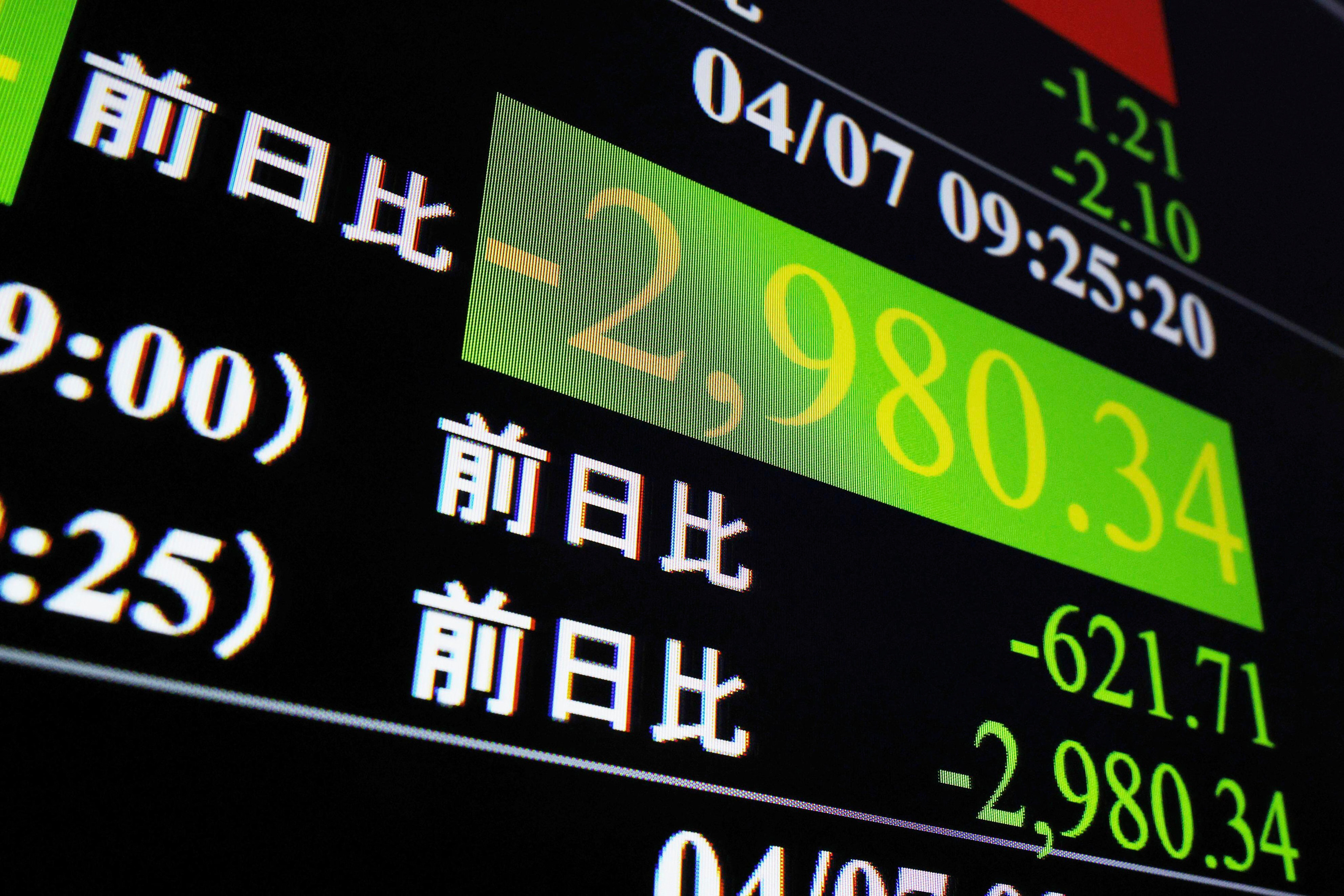Speaking to the press aboard Air Force One on Sunday night, Donald Trump reaffirmed his tariff war by stating that foreign governments would have to pay "a lot of money" to lift the global tariffs he imposed last week. "I don't want anything to happen, but sometimes you have to take medicine to fix something," he added. Hours after these statements, there was a significant drop in Asian markets.
The Japanese benchmark index Nikkei 225 fell by almost 9% in early Monday trading. Hong Kong's stock index, the Hang Seng, experienced its biggest drop in over a year (over 8%), while in mainland China, the CSI 300, tracking the 300 largest stocks traded in Shanghai and Shenzhen, plunged by up to 7.6%.
In the Asian giant, tech titans Alibaba and Tencent also dropped over 8%. Taiwan, whose stock market was closed on Friday, opened on Monday with a nearly 10% plunge, and South Korea's Kospi retreated by 9.7%. In Singapore, the Straits Times index fell by 7%, and Australia's ASX 200 was down around 6%. Indian stocks opened lower on Monday, with Nifty 50 and Sensex falling by around 5%.
An analysis by the Hong Kong newspaper South China Morning Post reveals that benchmark indices hit their lowest level in 52 weeks in 11 of the 14 most important stock markets in the Asia-Pacific region, which saw their first major reaction (Chinese and Hong Kong markets were closed on Friday for the Ching Ming Festival holiday, equivalent to All Saints' Day in Spain) since Trump initiated his global tariff war against trading partners.
"They took away our businesses, our money, and our jobs. I won't back down unless other countries balance their trade with the United States," stated Trump, who revealed that over the weekend, he spoke with "many foreign leaders eager to reach an agreement."
Last Friday, China, facing an economic growth slowdown due to the prolonged real estate crisis, deflation, and internal consumption crisis, announced its counterattack to the so-called "reciprocal tariffs" from the United States with measures including an additional 34% tariff on all imported American products and a complaint to the World Trade Organization (WTO).
While Beijing was the first to respond strongly to Trump, US Asian allies have chosen a much more moderate approach. From Taiwan, President Lai Ching-te stated on Sunday that there are no plans to retaliate against the 32% tariff imposed by the US and that Taipei will eliminate all tariffs on American imports. Although the highly demanded semiconductors manufactured on the island are exempt from Trump's broad tariffs, TSMC's shares, the leading manufacturer of advanced chips, dropped by almost 10%, as did Foxconn, which assembles iPhones for Apple in China using chips made in Taiwan.
In Tokyo, Prime Minister Shigeru Ishiba stated that he would travel to Washington as soon as possible to meet with Trump. In Vietnam, the head of the ruling Communist Party, To Lam, was one of the first leaders to directly call Trump over the weekend to request a delay in the tariff implementation - set for April 9 - to allow more time for negotiations.
